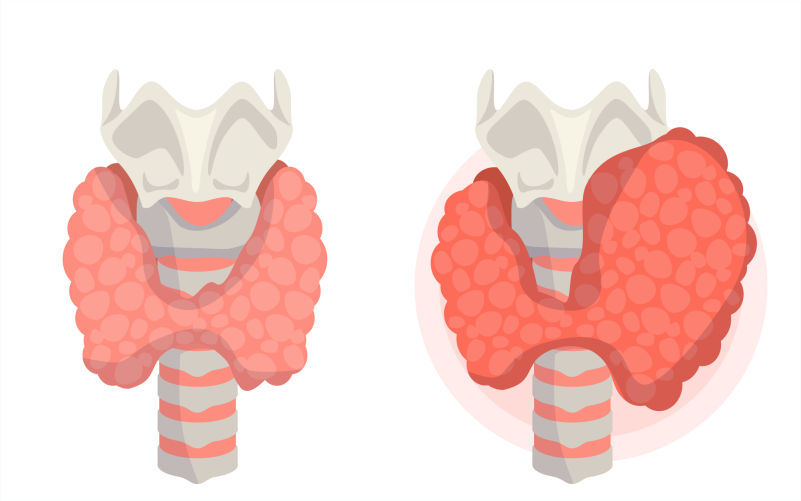Thyroid Disorders
Thyroid disorders encompass a range of conditions that affect the function of the thyroid gland, a butterfly-shaped gland located in the neck. The two most common thyroid disorders are hypothyroidism (underactive thyroid) and hyperthyroidism (overactive thyroid). Here’s an overview of these disorders and their treatments:

Hypothyroidism
Hypothyroidism occurs when the thyroid gland doesn’t produce enough thyroid hormone. Symptoms may include fatigue, weight gain, cold intolerance, and depression. The main treatment for hypothyroidism is hormone replacement therapy, which involves taking synthetic thyroid hormone medication (levothyroxine) orally. The medication helps restore normal thyroid hormone levels in the body and alleviates symptoms. Regular monitoring of thyroid hormone levels through blood tests is necessary to adjust the medication dosage as needed.
Hyperthyroidism
Hyperthyroidism is characterized by excessive production of thyroid hormone. Symptoms may include weight loss, rapid heartbeat, irritability, and heat intolerance. Treatment options for hyperthyroidism include
Medications
Antithyroid medications (such as methimazole or propylthiouracil) may be prescribed to inhibit the production of thyroid hormone and normalize thyroid function. These medications are usually taken for a period of time to achieve disease control.
Radioactive iodine therapy
This treatment involves ingesting a radioactive form of iodine, which is selectively taken up by the overactive thyroid cells. The radiation helps destroy the excessive thyroid tissue, leading to a reduction in thyroid hormone production. It may take several months for the full effect to be seen, and in some cases, it can lead to hypothyroidism that requires subsequent hormone replacement therapy.
Surgery
Surgical removal of all or part of the thyroid gland (thyroidectomy) may be recommended in certain cases, such as large goiters, severe hyperthyroidism, or when radioactive iodine therapy is contraindicated. After surgery, individuals may need lifelong thyroid hormone replacement therapy if the entire thyroid gland is removed.
It’s important for individuals with thyroid disorders to receive ongoing monitoring and care from healthcare professionals specializing in endocrinology or thyroid disorders. Regular check-ups, thyroid function tests, and adjustments to medication dosages (if needed) are part of the long-term management and treatment of thyroid disorders.







